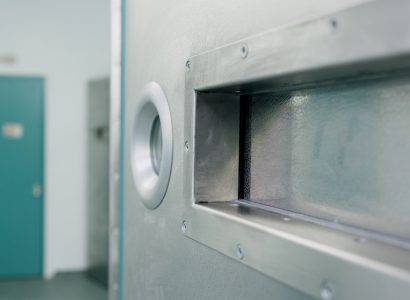As a central part of my role at ICVA, I write training, policy and give a host of advice to schemes to pass on to ICVs about what custody and detainee treatment should look like. I spend a reasonable amount of time examining inspection reports, looking at themes and areas of good practice and those that require improvement.
What does this have to do with shadowing a custody shift? Well, it’s important to me too, to make sure that the information we are pushing out to schemes, stakeholders and ICVs is balanced and not only promotes good practice and a dedication to the rights and dignity of the detainees, but it also balanced in terms of the demands on custody staff and the custody environment itself. The best way to do this? Go and spend some time in custody! Myself, ICVA’s CEO and our board members are committed to ensuring that we shadow visits, shifts in custody (and last year HMIP/HMICFRS inspections) to ensure that we don’t become removed from the work our volunteers do and indeed the custody environment itself.
I decided that a weekend night shift would be a good one to shadow, and thanks so much to Erika and your Custody Inspector from Surrey for organising it; I was invited to go along to Guildford custody suite.
I arrived at the suite at 5pm to watch a handover and then stayed with the shift until around 3am, (the shift finished at 6am). The suite can take up to 24 detainees and on this shift, there were three Custody Sergeants and four DDOs (Designated Detention Officers). All custody suites have DDOs or CDOs (Custody Detention Officers), who have a range of responsibilities and duties in the custody environ, (not least the escorting of ICVs!). This blog is an ode to them.
From the moment I arrived until pretty much the moment I left, it struck me that the DDOs don’t really sit still. As some of the detainees were on 30 min checks, the decision at Guilford is to do 30-minute checks for all. At its busiest point, the suite had 12 detainees in it, so every 30 mins, someone would go around, check that detainees were all ok and if they needed anything. If detainees are asleep, then the DDOs watch for no less than ten seconds to ensure they can see them breathing. Detainees have the right to uninterrupted rest.
These checks take place through the hatch, and the DDOs ask if they are ok, ask if the detainee wants something to eat or drink and generally check on their wellbeing. On the shift I shadowed there wasn’t a single round of these checks that I recall that didn’t result in some requests, be that for food, (the all-day breakfast was most popular for those interested), drinks or to ask a question about interviews, solicitors, requesting to see a healthcare professional or simply requesting to know the time, (this last request was a feature throughout the shift).
After each round of checks the DDO then returned to the bridge to input the checks. Once this was done, the requests were filled, so DDOs made tea, heated meals and delivered them, put requests to the Sergeants for visits from healthcare. It’s the DDOs who put in the request for Appropriate Adults and at Guildford gave a very positive overview of the out of hours service they receive, (which I am happy to vouch for, the service was speedy for the detainees who required an AA whilst I was there). They also attained updates as to when interviews might take place, if solicitors were on the way and the progress of cases from the Custody Sergeants feeding all information back to the detainees. DDOs also go and get detainees from cells for interview, or to see healthcare and solicitors and return them to cell afterwards. In Guildford, DDOs also take prints and swabs from detainees and book detainees in under the watch of a custody sergeant.
DDOs have to juggle and manage the needs of different detainees that can range from simple to complex. It can include tasks like responding to a detainee repeatedly pressing a call bell, highlighting mental health concerns and working with aggressive detainees. DDOs can observe detainees via CCTV and respond to what they see, for example, they may observe a detainee vomit and move them to a clean cell before tackling the clean up. I witnessed DDOs managing requests to see doctors, repeated use of the cell bell, requests for food and drunk, booking in and taking prints and swabs whilst also working with detainees with complex needs.
Detainees in police custody come in all shapes, sizes and behaviours, and DDOs are at the forefront and the most consistent point of contact for them all. This means that it could often be a DDO who might spot a change in behaviour for an individual, that a detainee was in pain or simply answer the same request for the time or a solicitor over and over again. They are crucial members of staff.
Whilst in my time in Guilford, above and beyond the care shown to detainees, what I noticed was the level of patience required by the role. The noise levels and the levels of request on a 12-hour shift in custody were quite something to behold at times, and although there were of course much quieter spells, when it’s busy, it’s busy. And when its busy, it’s often noisy. In all of the visits I have undertaken in custody I have seen DDOs interact with detainees with dignity, patience and often humour but I had never considered what a full shift might look or feel like and I left nine hours in! Suffice to say, I left Guildford with if not a new respect, certainly a better-informed and renewed respect for the DDOs there, and the role in general.




